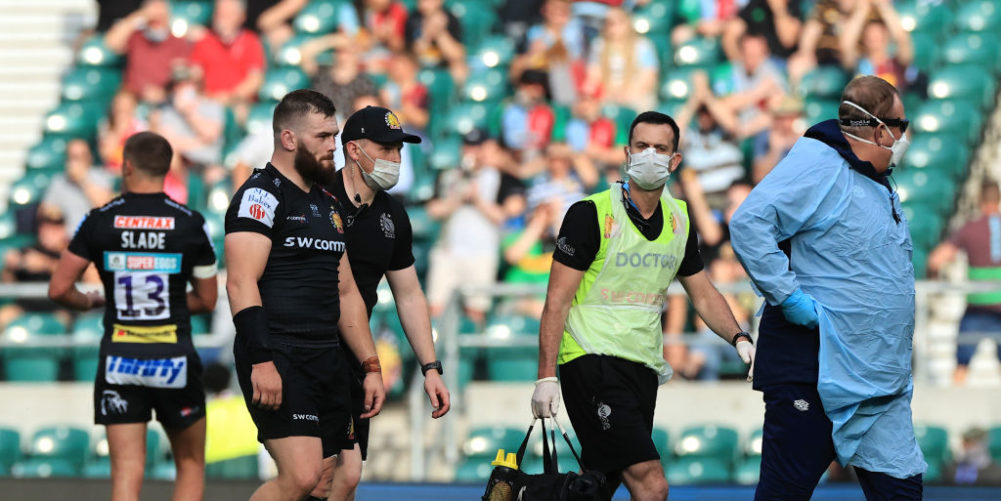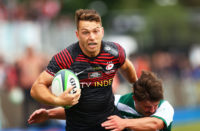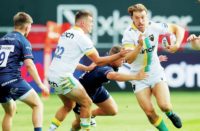World Rugby has announced a significant number of measures and law trials as it seeks to reduce the impact of concussion in rugby.
The governing body has confirmed it will trial the 50:22 kicking rule across all global competitions for 12 months, and will review its use at a meeting in May 2022.
The 50:22 law means that if a player kicks the ball from their own half and it bounces into touch within the opposition's 22, then the attacking team will receive a lineout.
Trialled in Super Rugby AU earlier this year, the 50:22 rule is seen as a means of pulling players out of the defensive line to cover the touchline.
Additionally, World Rugby have also approved the trial of the goalline dropout which is intended to reduce the number of scrums.
With the goalline dropout law, if the ball is kicked into the try area and dotted down by the defending side, instead of a 22m dropout they will now have one from the tryline.]
Both of these measures had been in movement last month when the Sydney Morning Herald first reported the trials were set to be approved for global practice.
But World Rugby also confirmed further measures centered on the contact area, with pods of three or more players now being penalised as well as ‘latching on' limited to only one player.
“Rugby's laws are fundamental to its accessibility, appeal and safety. It is our mission to ensure that the laws are the best that they can be for everyone playing the game and this law review process has players and player welfare at heart as the approvals show.”
World Rugby Director of Technical Services Mark Harrington added: “Law evaluation is an important facet of our holistic approach to reducing the risk of injury in the sport and we continually monitor, review and evolve the laws of the game with the ambition of making rugby as simple and safe as possible.”
Last year saw former England hooker Steve Thompson, hooker Michael Lipton and Wales flanker Alix Popham bring legal action against World Rugby, the RFU and WRU after being diagnosed with early onset dementia.
Popham accused World Rugby of having inferior concussion protocols during his playing career, saying last December: “You thought concussion was when you were out cold on the pitch,” he says. “If you felt a bit groggy, you would have a sniff of salts. You didn't want to come off the field as a player and show weakness.
“You knew your body was going to be sore in retirement, but nobody knew your brain was going to be in bits as well.”
World Rugby has revealed a six-point plan to advance player welfare with a focus on both current and former men's and women's rugby players.
The body say they will work to provide the ‘best practice in care' in regard to the health of former players, while also doubling its funding for scientific innovation to better understand concussion and means of detection.
This has led to the formation of a panel of Independent Concussion Consultants (ICC), funded by World Rugby, who will review return to play cases to judge whether players at Test level are safe to feature for their teams.
“This will become an integral part of the graduated return to play process for the elite game,” said World Rugby's chief medical officer Dr Eanna Falvey.
“We've used the ICC at the World Cup in 2015 and 2019, particularly in a tight game turnaround.
“But we consulted with our concussion working group and we had a significant review process of what we could do to strengthen the graduated return to play. And the addition of the ICC was seen as the best option.”
The British & Irish Lions recently came under scrutiny for allowing Luke Cowan-Dickie to play against the Cheetahs one week after he was knocked unconscious in the Premiership final in action for Exeter Chiefs.
Though, Dr Falvey explained that an ICC was used to review Cowan-Dickie's case, with World Rugby happy with the whole process of the forward's return to action.




























Pingback: ข่าวกีฬา